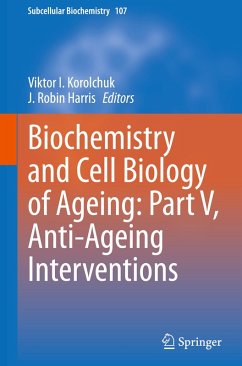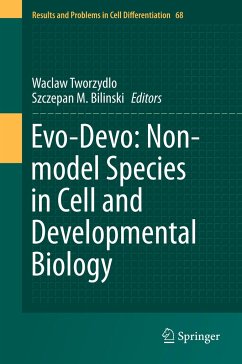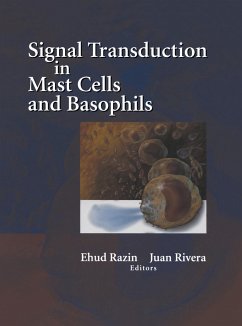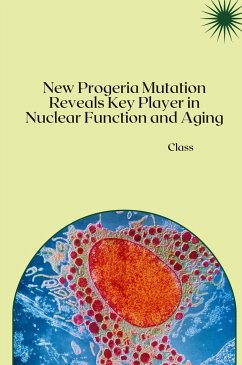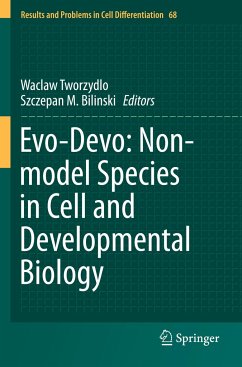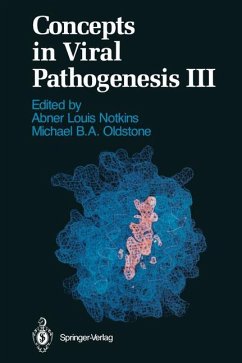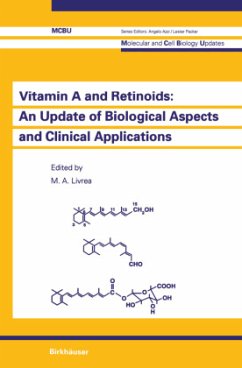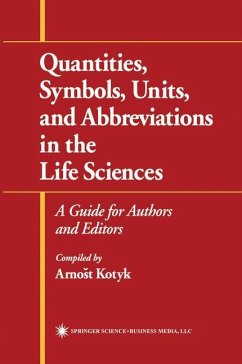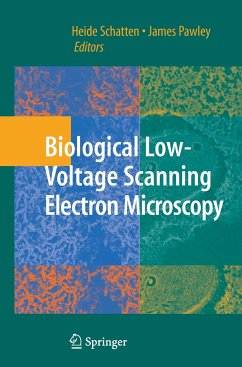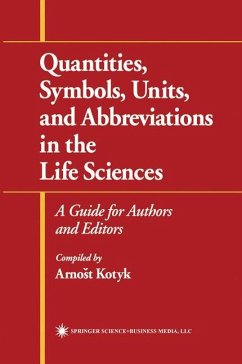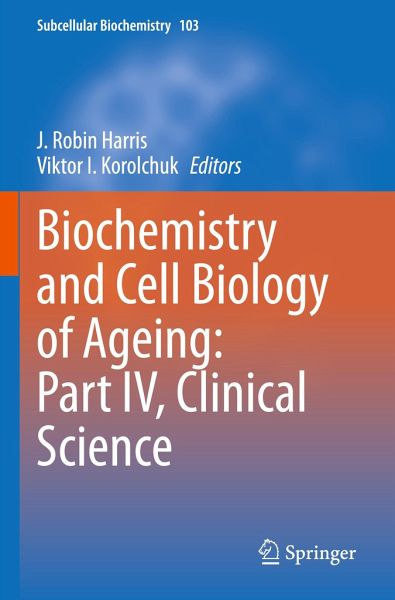
Biochemistry and Cell Biology of Ageing: Part IV, Clinical Science
Versandkostenfrei!
Versandfertig in 6-10 Tagen
136,99 €
inkl. MwSt.

PAYBACK Punkte
68 °P sammeln!
This book provides an up-to-date overview of key areas of ageing research and bridges the gap between the subcellular events and the reality of ageing as seen in clinical practice.To this end, the reader learns about the historical development and progression of clinical ageing research. All chapters address the biochemistry or cell biology of various ageing events (to the extent that the data are available) and work their way to the clinical understanding we have of ageing. The focus of this volume is on how dietary restriction, virus infection and chronic inflammation affect the ageing proce...
This book provides an up-to-date overview of key areas of ageing research and bridges the gap between the subcellular events and the reality of ageing as seen in clinical practice.
To this end, the reader learns about the historical development and progression of clinical ageing research. All chapters address the biochemistry or cell biology of various ageing events (to the extent that the data are available) and work their way to the clinical understanding we have of ageing. The focus of this volume is on how dietary restriction, virus infection and chronic inflammation affect the ageing process. Additionally, this book discusses how phosphate metabolism and metabolic dysfunction contribute to ageing events and how various organs and tissues (e.g. tendons, ears, heart muscle, and the endocrine system) age.
This book follows on from Parts I, II and III of Biochemistry and Cell Biology of Ageing within the Subcellular Biochemistry book series and aims to bring the subcellular and clinical areas into closer contact by including interesting and significant biomedical ageing topics that were not included in the earlier volumes. Comprehensive and cutting-edge, this book is a valuable resource for experienced researchers and early career scientist alike, who are interested in learning more about the fascinating and challenging question of why and how our cells age.
To this end, the reader learns about the historical development and progression of clinical ageing research. All chapters address the biochemistry or cell biology of various ageing events (to the extent that the data are available) and work their way to the clinical understanding we have of ageing. The focus of this volume is on how dietary restriction, virus infection and chronic inflammation affect the ageing process. Additionally, this book discusses how phosphate metabolism and metabolic dysfunction contribute to ageing events and how various organs and tissues (e.g. tendons, ears, heart muscle, and the endocrine system) age.
This book follows on from Parts I, II and III of Biochemistry and Cell Biology of Ageing within the Subcellular Biochemistry book series and aims to bring the subcellular and clinical areas into closer contact by including interesting and significant biomedical ageing topics that were not included in the earlier volumes. Comprehensive and cutting-edge, this book is a valuable resource for experienced researchers and early career scientist alike, who are interested in learning more about the fascinating and challenging question of why and how our cells age.



